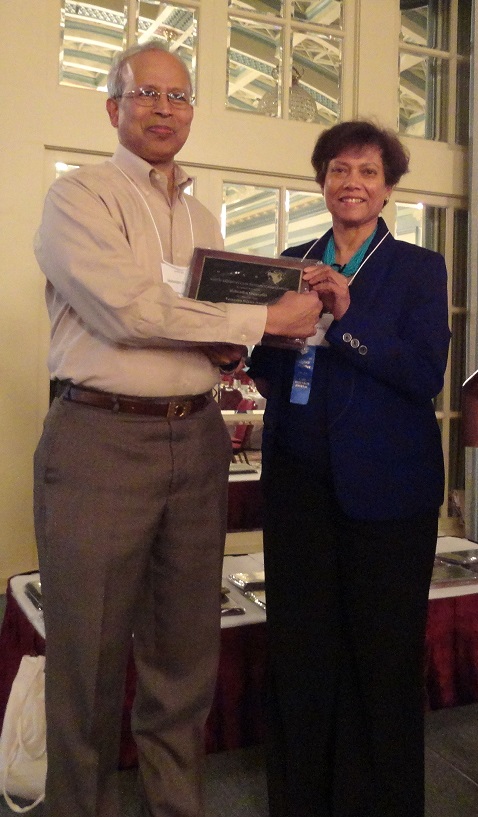
 Bentley Accountancy Professor Mahendra Gujarathi wants his students to understand that contrary to textbooks, the answers to accounting issues in the real world are not black and white but shades of gray. He teaches this through experiential education using real-world cases. One such case — Diamond Foods Inc. — addressing the topic of anatomy and motivations of earnings management earned Gujarathi the Emerson Ethics Award from the North American Case Research Association (NACRA). The award was presented in October at NACRA’s 2013 annual conference in Victoria British Columbia, Canada.
Bentley Accountancy Professor Mahendra Gujarathi wants his students to understand that contrary to textbooks, the answers to accounting issues in the real world are not black and white but shades of gray. He teaches this through experiential education using real-world cases. One such case — Diamond Foods Inc. — addressing the topic of anatomy and motivations of earnings management earned Gujarathi the Emerson Ethics Award from the North American Case Research Association (NACRA). The award was presented in October at NACRA’s 2013 annual conference in Victoria British Columbia, Canada.
The award-winning case was evaluated by five to seven individuals including several experienced and highly published case writers. In addition to the recognition at the annual conference as the best case addressing business ethics, the award includes an honorarium and stipend to travel to St. Louis, where Gujarathi will present the case at a forum of the Saint Louis University Emerson Center for Business Ethics.
“It is a nice professional recognition from an association that is known world over for promoting excellence in case writing, research and teaching,” Gujarathi says of receiving the award. “More importantly, it is a validation of the experiential learning we try to impart at Bentley.”
Gujarathi is a veteran in the field of scholarship on accounting education. In a recent study, he was ranked #1 nationwide for published articles on accounting education during 2007-2012.
During a roundtable discussion at the conference, Gujarathi presented the Diamond Foods case that describes evolution of the company from an agricultural cooperative into a commercial corporation, and its questionable accounting in 2011 for the vendor payments. Media coverage brought down Diamond’s stock price from $96 to $14 within months and resulted in an internal investigation by the audit committee and firing of both the CFO and CEO of the company.
“The case, class-tested with about 300 Bentley students in 13 sections of an undergraduate accounting degree Intermediate Accounting course, was well-received by both students and instructors,” Gujarathi reports. “While earnings management is a common occurrence in corporations, textbook exposition on the anatomy and motivations of earnings management is limited. That is where case studies such as Diamond Foods make a contribution to the curriculum.”
In addition to helping students understand the anatomy and motivations of earnings manipulation, the case provides an opportunity to:
• Apply Financial Accounting Standards Board Conceptual Framework
• Determine the nature of errors and compute their effects on financial statements
• Present comparative financial statements for retroactive restatements
• Demonstrate the rationale for clawback provision in compensation contracts
• Understand the difference between real- and accrual-based earnings management
Photo: Professor Mahendra Gujarathi (left) receives the Emerson Ethics Award from NACRA President Vijaya Narapareddy

